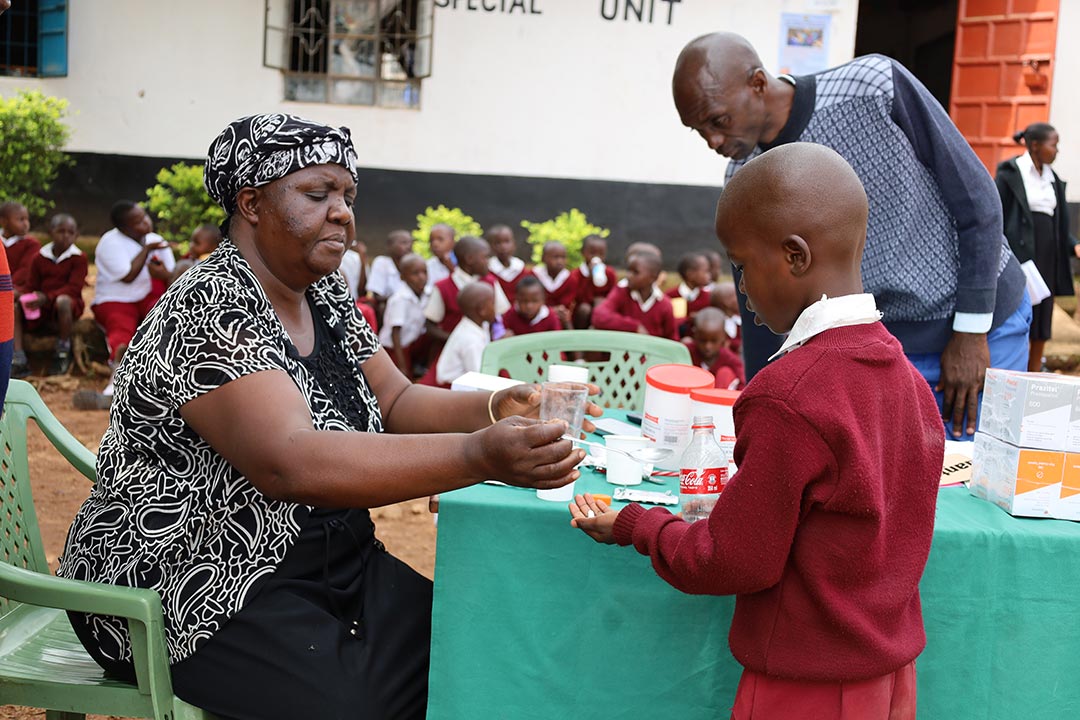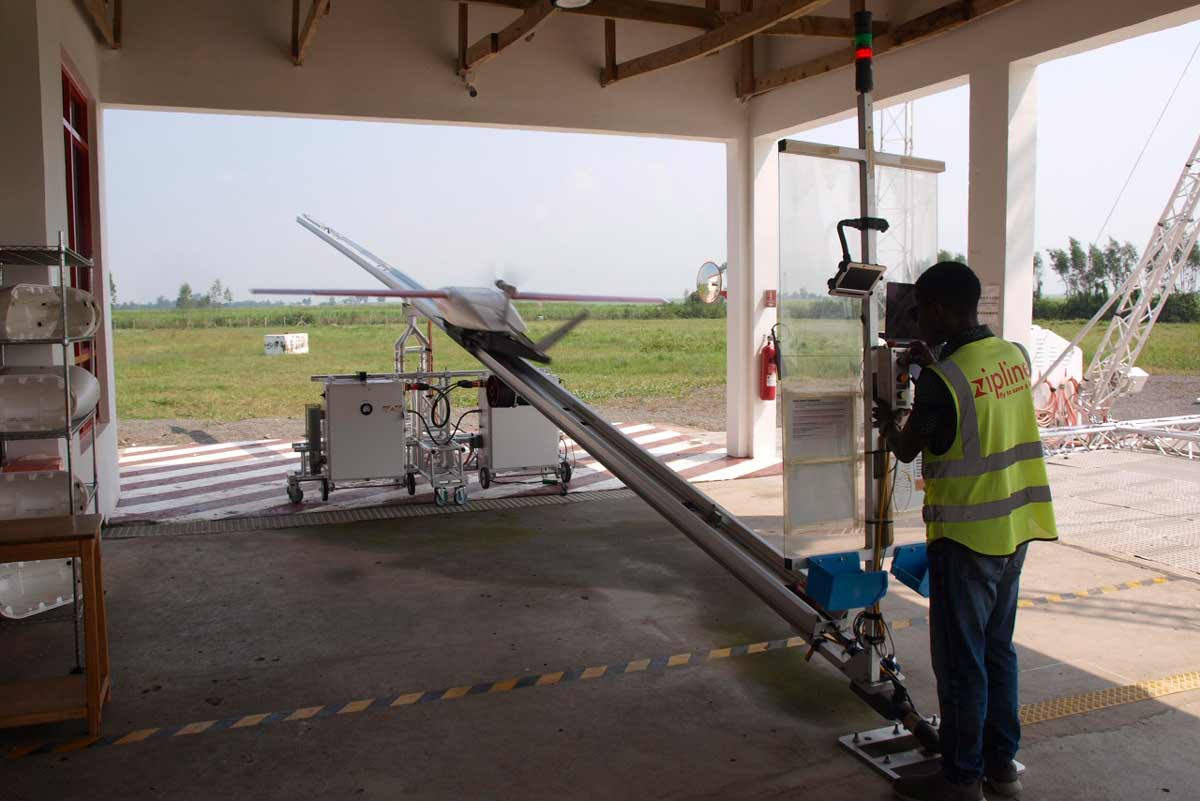“Just two drops: This is what I didn’t have”: veteran polio activist Harold Kipchumba
Kipchumba, a former nominated Kenyan senator, has spent decades fighting for the vaccine he didn’t get.
- 22 October 2024
- 7 min read
- by Joseph Maina
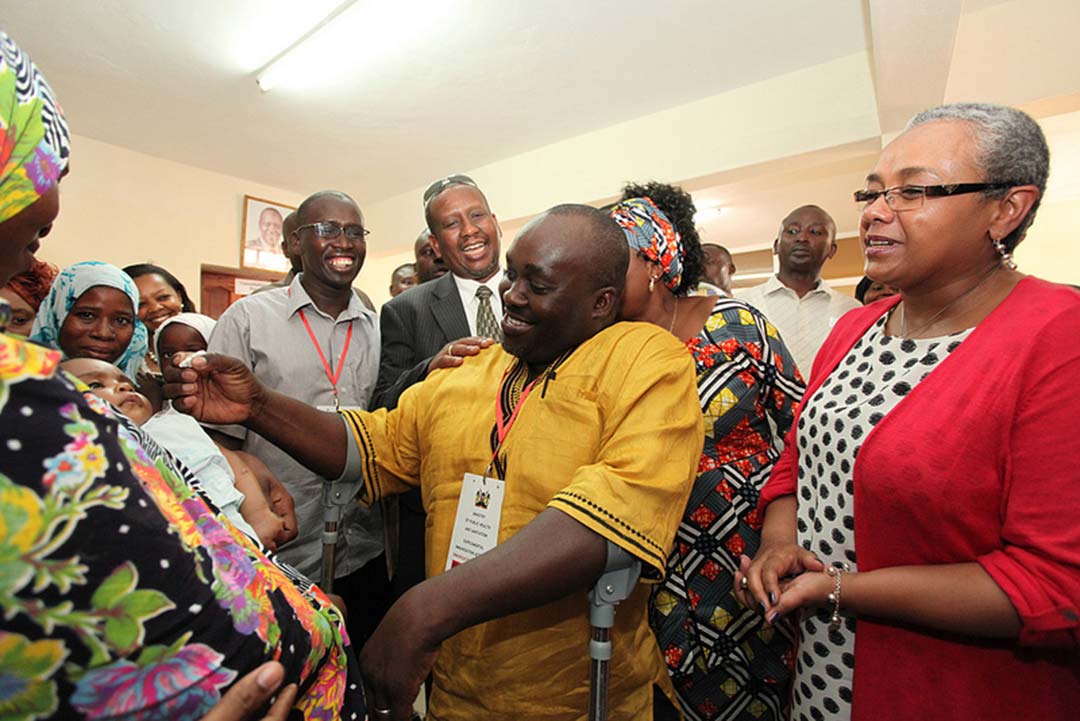
Growing up, Harold Kipchumba dreamed of joining the Kenyan army. In 1986, when he was 22, he showed up on crutches to a military recruitment workout and was turned down on sight: his disability disqualified him from the military, he was told.
Kipchumba had developed polio at the age of three. The disease led to permanent paralysis in both his legs.
Born in the 1960s in then-remote Baringo District, Kipchumba arrived a good decade ahead of the possibility to get immunised. The world's first two polio vaccines – Jonas Salk's and Albert Sabin's – began to roll out in the US in 1955 and 1961 respectively, but neither would be introduced in African countries until the 1970s.
“These days, it’s easy to prevent polio. All it takes is a vaccine. They now go around vaccinating babies in the neighbourhood. These things were not available in those days."
- Ruth Kobilo Kimuge, 94, Kipchumba’s mother
When they did, they made an impact. In Kenya, no cases of poliomyelitis were recorded in the 22 years after 1984.
But in 2006, polio re-emerged. By then, fortunately, Kipchumba had found both his voice and his cause.
Mystery sickness
"It took a very long time for us to discover what was ailing my son," said Ruth Kobilo Kimuge, now 94, in her first-ever media interview. She remembers travelling the country in search of a remedy for her boy. Medics prescribed various treatments, but none worked.
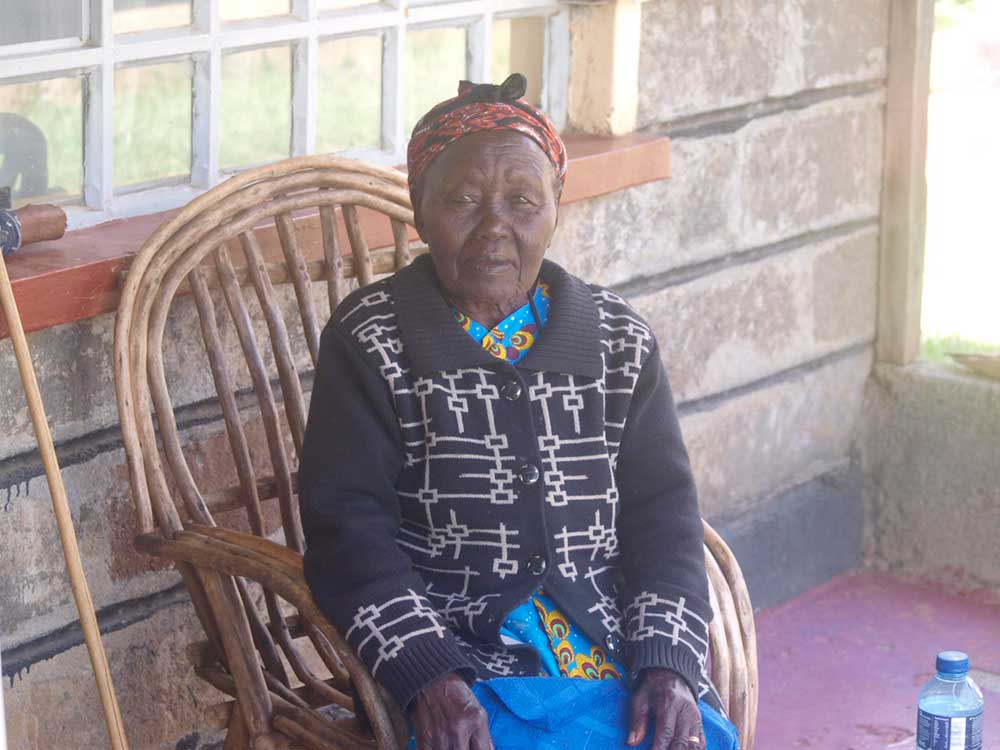
Credit: Joseph Maina
"A doctor from the United States finally informed us that this was polio. He said there was no cure for the disease," Kobilo recalled. It was a sunny September afternoon, and she sat on the balcony of her son's home near Nakuru City.
Stigma stalked the family, she said. Having a deformed child earned her varied degrees of pity and derision from her relatives and community, some of whom regarded Kobilo as cursed. Amid the rising tension, Kipchumba's father, now deceased, married a second wife.
Kobilo found some relief when Catholic missionaries spotted her child in a hospital, and offered to take him with them for specialised care and schooling. Kipchumba went with them, got his education at the children's home, dreamed his unlikely military dreams, and grew up.
"These days, it's easy to prevent polio. All it takes is a vaccine. They now go around vaccinating babies in the neighbourhood. These things were not available in those days," Kobilo said, wistfully.
Finding his voice
Kipchumba says the "activism bug" bit him during his school-going days. He was endowed with a remarkable gift of the gab, which came in handy on many occasions.
And even when he audaciously tottered on his crutches into the recruitment stadium that morning in 1986, undisturbed by the stares and scarcely constrained gawking from fellow candidates, he was effectively making a case for the disabled.
Recalling the event, he told VaccinesWork that he knew he didn't stand a chance. Still, he wanted to impress upon the military brass that disabled people, too, could contribute to the country's defence needs, if they were assigned the less physically exerting roles such as those held by typists and receptionists.
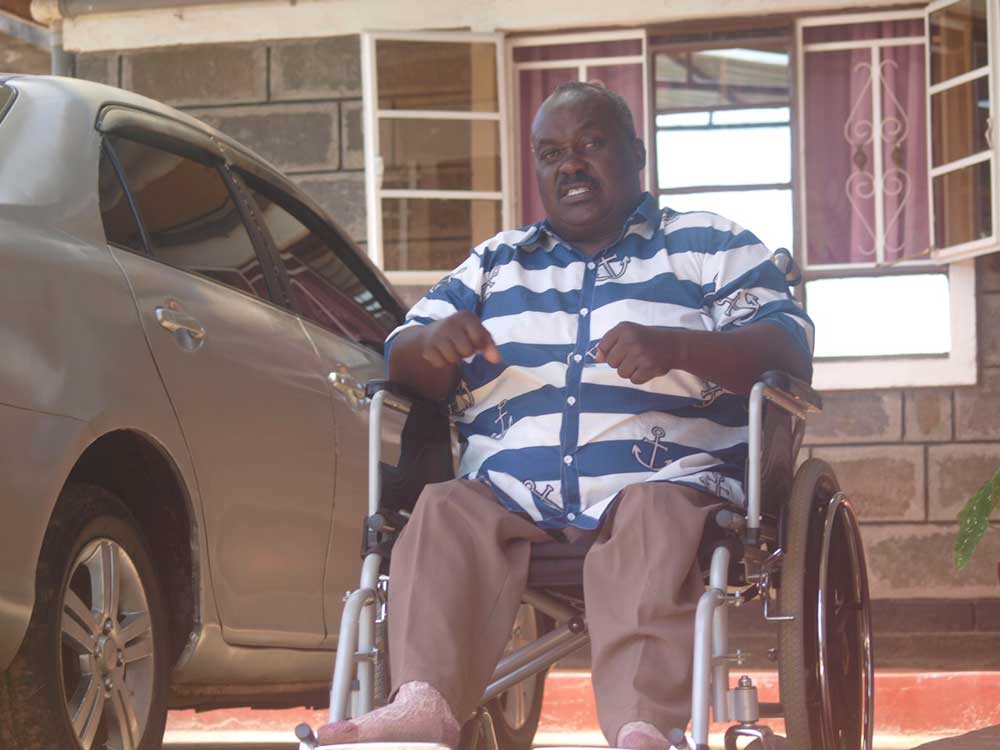
Credit: Joseph Maina
In the early 2000s, he started championing vaccination and disability rights, particularly for children. He took up polio vaccine advocacy in 2013, following a polio outbreak in neighbouring Somalia in 2013, and worked closely with influential well-wishers, including the country's then First Lady, Margaret Kenyatta.
"At the time I was serving as a senator," explained Kipchumba, who served as a nominated senator for six months starting March 2013, a culmination of years of informal advocacy since he dropped out of university in the '80s.
"The First Lady came up with a programme on maternal health care. At the time, the health ministry was strongly campaigning against polio. I asked the ministry officials to consider listening to polio survivors, and luckily, they listened. I asked the first lady if I could become the face of polio in the country, and she agreed."
Making a splash
He recalls that his first engagement in this role was in Nyali, on the Kenyan coast.
"I gave a speech about the pain of living with polio, and many polio vaccine advocates picked a catchword from this speech: I explained how I missed a lot in life just because I missed two drops of a vaccine."
Kipchumba dropped another powerful sound bite that Kenyan health officials hastily picked and used in their polio awareness banners.
"In one of the slums in Kiambu County, during the launch of polio vaccination, I said, had my mother known, she would have taken me for vaccination. This was captioned in the national polio advert. It touched so many people, and was used by the Ministry of Health for a while."He was named the UN in Kenya Person of the Year 2015 for his role in eliminating and eradicating vaccine-preventable diseases. That same year, another former senator, Professor Anyang' Nyong'o, summed up Kipchumba's advocacy milestones in a colourful tribute delivered in the Kenyan senate.
Have you read?
"Senator Kipchumba has done this Senate and country a lot of good," said Nyong'o. "He makes us proud for his determination, not only to stand up for the right of people with disability, but also to ensure that a disease that brings about disability – that is, polio – is eradicated from the face of the earth."
Making a difference
Kipchumba is proud of his impact in spreading awareness about polio vaccination, particularly among vaccine-averse communities.
"We have reached out to resistant communities that included some faith-based formations, indigenous groups and some remote counties of Kenya. We also managed to reach some less-covered people, such as gated communities, elites who had shown an aversion to public immunisation campaigns and some urban communities."
In a phone interview, Lillyan Mutua, Head of Health Promotion, Nairobi County, told VaccinesWork about what Kipchumba's vaccine activism has meant in the capital region.
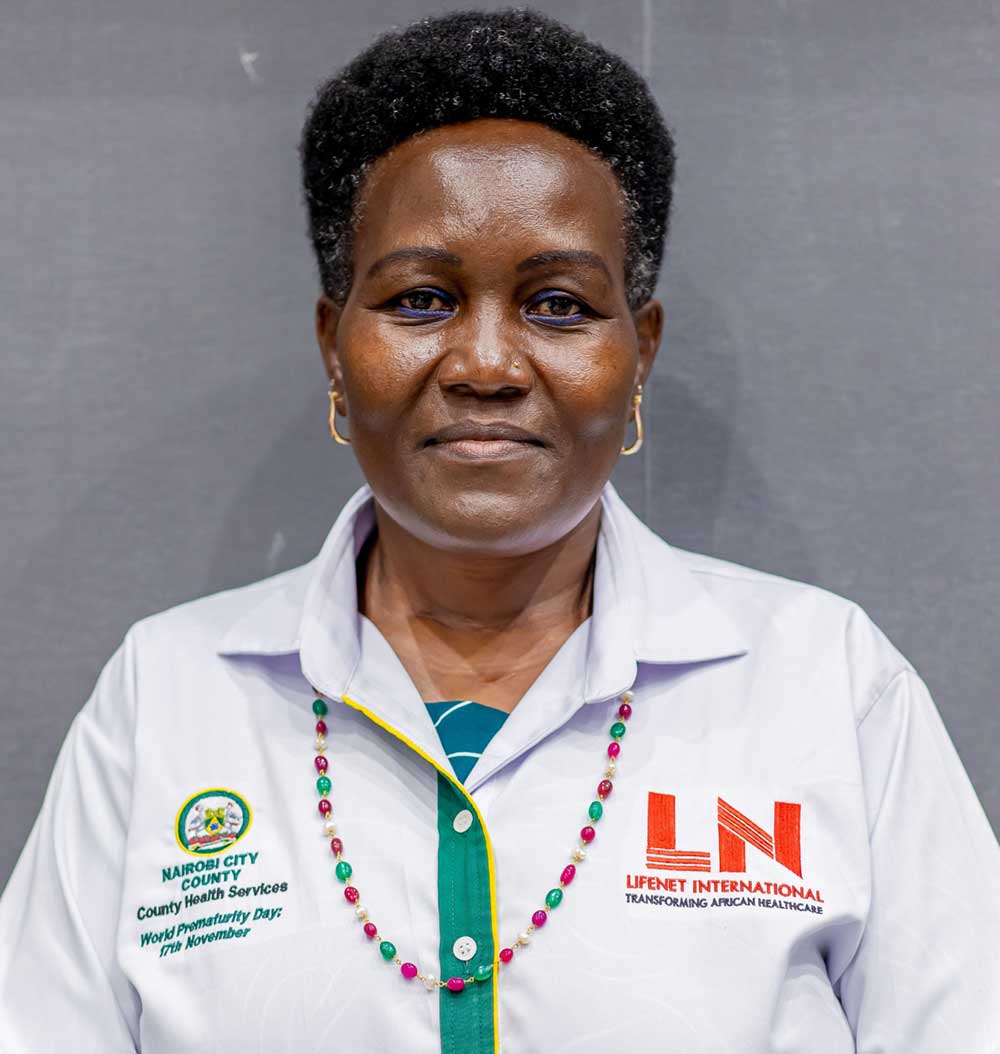
Credit: Lillyan Mutua
"We bring him on board to talk to people, explaining to them that polio is real. We also work with him in our advocacy meetings, where he narrates his personal story. We have found this to be very useful, as he is a very good storyteller and very successful in evoking people's emotions to think seriously about polio vaccination.
"Sometimes when we find vaccine refusal in some communities, we take him along. We also take him with us during launches. As a national polio champion, he also helps others to tell their stories. He did some very good work with sects, gated communities, and some ethnic groups that have vaccine hesitancy. Whenever he wins over a community, its members eventually become vaccine advocates."
Abraham Sumukwo, a clinician in the Department of Health in Baringo County, told VaccinesWork that he had worked with Kipchumba for more than two decades, mostly on advocacy for disability rights and vaccines. "I started working with Kipchumba in 2002, when there were hardly any structured community engagements in our region. We have educated families of children suffering from polio about the holistic needs of such children, showing them that these were normal children with needs like any other person."
Working closely with local media, they have also sensitised communities on immunisation against polio and other vaccine-preventable diseases. Sumukwo said that during polio vaccination days, Kipchumba would pitch a tent in immunisation centres, where he would talk to the children and parents, while administering polio vaccines. He said such efforts, combining with the wider campaigns, saw the overall polio uptake increase in Baringo County, especially in the arid regions that are mostly inhabited by pastoralist communities, among whom uptake has historically been lower.
"We used to have around 30–40% vaccine uptake in the lower regions of Baringo County. This rose to up to 75%," said Sumukwo, clarifying that that increased uptake took place over the course of the past two decades, particularly in the arid regions of the county that have traditionally suffered lower coverage.
Besides his vaccine advocacy work, Kipchumba is the founder and head of Bare Care, an organisation that champions disability rights, human rights and governance.
